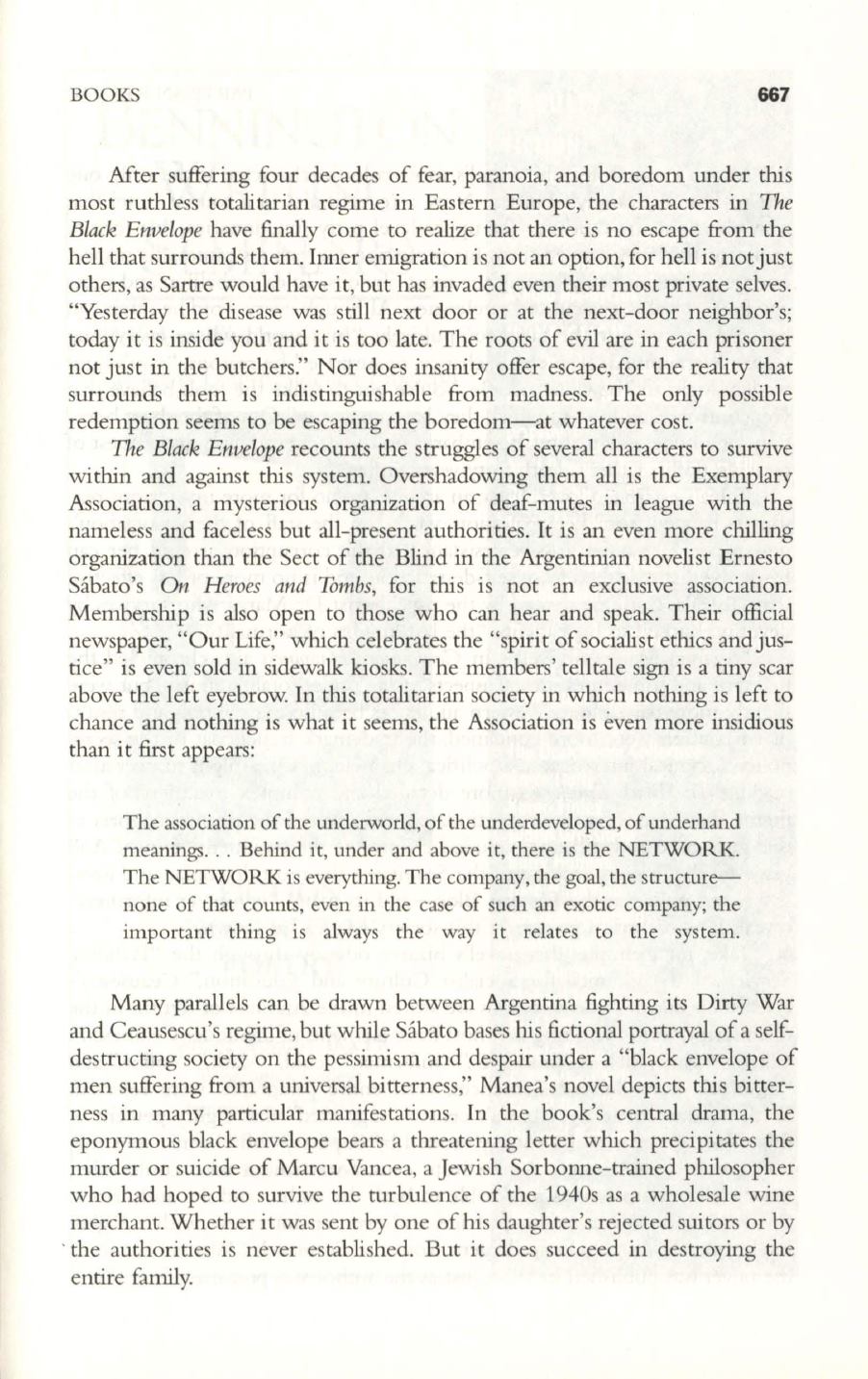
BOOKS
667
After suffering four decades of fear, paranoia, and boredom under this
most ruthless totalitarian regime in Eastern Europe, the characters in
The
Black Envelope
have finally come to realize that there is no escape from the
hell that surrounds them. Inner emigration is not an option, for hell is not just
others, as Sartre would have it, but has invaded even their most private selves.
"Yesterday the disease was still next door or at the next-door neighbor's;
today it is inside you and it is too late. The roots of evil are in each prisoner
not just in the butchers." Nor does insanity offer escape, for the reality that
surrounds them is indistinguishable from madness. The only possible
redemption seems to be escaping the boredom--at whatever cost.
The Black Envelope
recounts the struggles of several characters to survive
within and against this system. Overshadowing them all is the Exemplary
Association, a mysterious organization of deaf-mutes in league with the
nameless and faceless but all-present authorities.
It
is an even more chilling
organization than the Sect of the Blind in the Argentinian novelist Ernesto
Sabato's
On Heroes and Tombs,
for this is not an exclusive association.
Membership is also open to those who can hear and speak. Their official
newspaper, "Our Life," which celebrates the "spirit of socialist ethics and jus–
tice" is even sold in sidewalk kiosks. The members' telltale sign is a tiny scar
above the left eyebrow. In this totalitarian society in which nothing is left to
chance and nothing is what it seems, the Association is even more insidious
than it first appears:
The association of the underworld, of the underdeveloped, of underhand
meanings... Behind it, under and above it, there is the NETWORK.
The NETWORK is everything. The company, the goal, the structure-–
none of that counts, even in the case of such an exotic company; the
important thing is always the way it relates to the system.
Many parallels can be drawn between Argentina fighting its Dirty War
and Ceausescu's regime, but while Sabato bases his fictional portrayal of a self–
destructing society on the pessimism and despair under a "black envelope of
men suffering from a universal bitterness," Manea's novel depicts this bitter–
ness in many particular manifestations. In the book's central drama, the
eponymous black envelope bears a threatening letter which precipitates the
murder or suicide of Marcu Vancea, a Jewish Sorbonne-trained philosopher
who had hoped to survive the turbulence of the 1940s as a wholesale wine
merchant. Whether it was sent by one of his daughter's rejected suitors or by
. the authorities is never established. But it does succeed in destroying the
entire family.


